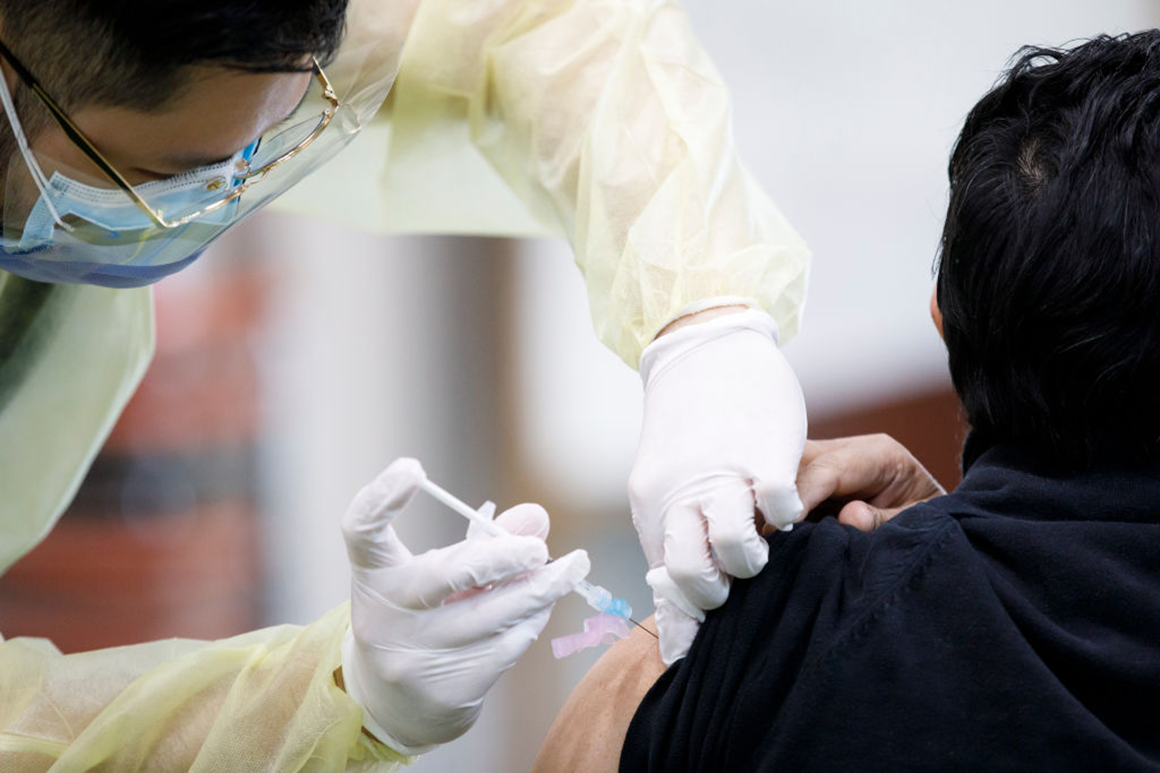Officials are pressing Moderna to deliver those Covid-19 shots to COVAX through September 2022, a target that would dovetail with the White House’s goal of vaccinating 70 percent of the world by the end of that month.
Gavi, the organization co-leading the COVAX initiative, did not respond to a request for comment.
A Moderna spokesperson confirmed that the company “has been in direct discussion with Gavi concerning this amendment to our current agreement,” but did not offer specifics.
The White House, which has also been involved in the discussions, declined to comment.
The people with knowledge of the matter said a formal announcement could occur in the coming weeks, bolstering COVAX’s ability to supply the 92 developing countries that have been heavily reliant on the initiative for access to Covid-19 vaccines.
The deal would represent the outcome of lengthy negotiations between Moderna and officials representing COVAX — talks that the people with knowledge of the matter said at one point grew so difficult, the Biden administration was forced to step in to help broker an agreement.
Biden officials in recent months have held near-daily discussions with Moderna to convince it to ramp up its international commitments, those people said — putting severe pressure on the company behind the scenes and at one point publicly warning the company last month that the U.S. expected it to take a stronger role in the global pandemic fight.
“We’ve been trying to get pharmaceutical companies, particularly those that are making mRNA, but anybody really… to increase capacity to get doses to low and middle-income countries quickly, as opposed to a program that starts in 2023,” a senior administration official said. “We want them to essentially increase existing capacity for the sole purpose of, not selling more to rich countries, but for the purpose of getting doses to lower- [and] middle-income countries.”
Among the chief obstacles is a Trump-era contract that Moderna signed in 2020 giving it full ownership of technology critical to making the vaccine and control over where it allocated its supply, despite the extensive federal funding and research that went toward its development.
Moderna allocated only a fraction of its vaccine supply this year to low- and middle-income countries, seeking instead to sell its doses to wealthier nations at higher prices.
The company has also refused U.S. officials’ pleas to share the formula for its vaccine with outside manufacturers focused on helping the poorer countries. Moderna and the U.S. are embroiled in an ownership dispute over key patents related to the vaccine, and the federal government has signaled plans to sue.
In the wake of President Joe Biden’s vow that the U.S. will lead efforts to vaccinate 70 percent of the world by next September, administration officials seeking ways to ramp up global supply have increased pressure on Moderna and other vaccine makers to donate more doses abroad.
Moderna agreed last month to send 110 million doses to the African Union through the first half of 2022, in a deal brokered partly by U.S. officials. The company in October also exercised options with COVAX to supply hundreds of millions of doses next year that were agreed to as part of a previous deal.
Still, even a new deal between Moderna and COVAX is unlikely to quiet critics who contend the company has long fallen short of its responsibility to aid a global vaccination campaign that is well behind schedule.
While more than half of the world’s population is at least partially vaccinated against Covid-19, those vaccinations have occurred disproportionately in wealthy nations. Just 4.5 percent of people in low-income countries have received at least one dose, and the poorest nations have struggled to secure deals of their own with vaccine makers.
COVAX, which was formed to promote vaccine equity, has suffered from a lack of financial investment and vaccine donations needed from wealthy countries to keep its global campaign on track. The initiative slashed its supply forecast earlier this fall, saying it will now take until 2022 to hit the 2 billion doses it originally planned to deliver by the end of the year.
Moderna, meanwhile, has transformed from a tiny pharmaceutical firm into a major success based solely off the development of its Covid-19 vaccine. The company — which had previously never brought a drug to market — has seen more than a tenfold increase in its stock price since March 2020. Four people tied to the company, including Moderna CEO Stephane Bancel, are now billionaires.
Earlier this month, Moderna executives predicted that sales of the company’s vaccine this year could reach $18 billion — with roughly half that amount generated by deals that it secured outside the U.S.
The company is targeting an even bigger 2022, with plans to produce 3 billion doses of its Covid-19 shot. Of that supply, it has committed to allocating one-third to low-income countries.





